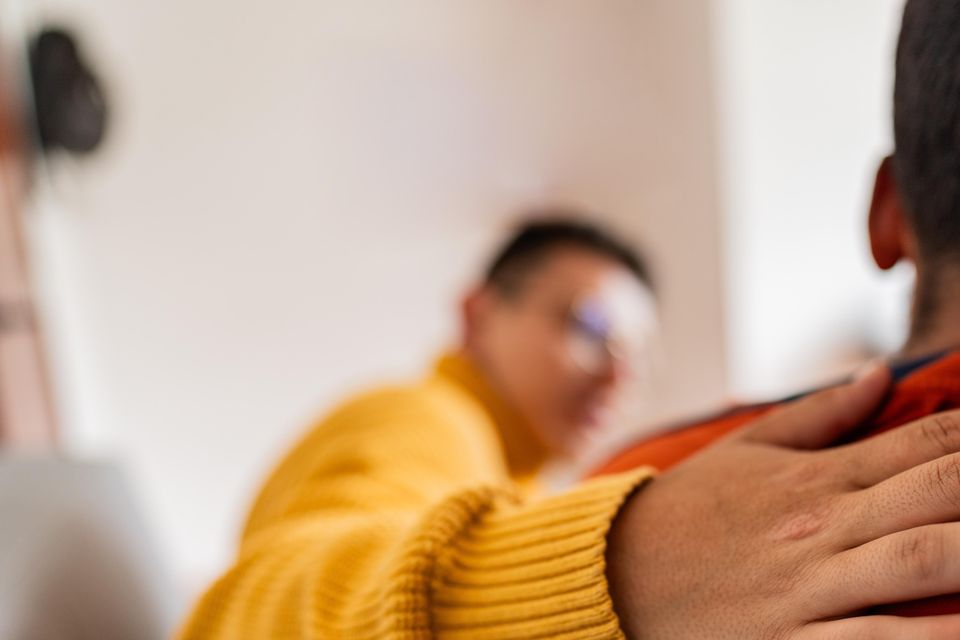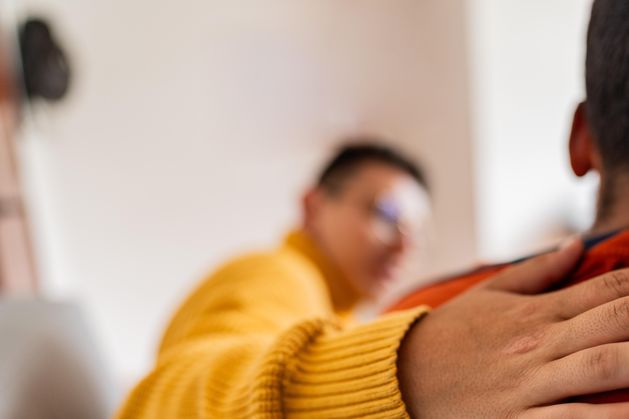Restrictive practices include physically restraining someone or secluding them in a room and not allowing them to leave.
The report was published by the Mental Health Commission (MHC), the independent regulator of mental health services in Ireland.
It shows the total of “restrictive practice episodes” in approved mental health centres fell significantly between 2018 and 2024.

The report published by the Mental Health Commission found restrictive practice fell by 62pc. Photo: Getty Images
Today’s News in 90 Seconds – Thursday July 31
Over that seven-year period, the use of physical restraint and seclusion fell by 91pc in Child and Adolescent Mental Health Services (CAMHS).
The use of mechanical restraint on children – using devices or bodily garments to restrain someone – was banned by the MHC in 2023.
Professor Jim Lucey, the author of the report and inspector of Mental Health Services, said: “Children are specifically protected from restrictive practices in Irish mental health care through a human rights-based approach, acknowledging their particular vulnerability to trauma and harm from restrictive interventions.
“Seclusion and physical restraint can have adverse implications for their emotional development. This approach, underpinned by the principles of trauma-informed care, has been further enhanced by the revised regulations.”
There was a “profound decline” in the number of restrictive practice episodes in CAMHS over the seven-year period, from 2,608 in 2018 to 238 in 2024.
“Our regulatory changes and initiatives, coupled with the commitment of leadership and staff to person-centred, therapeutic care has been instrumental in accelerating the downward trend in restrictive practice use in Ireland since 2022, and building on a significant decline observed since 2018,” MHC chief executive John Farrelly said.
The findings of the report have been welcomed by the MHC as a “positive result” for mental health services, with evidence showing restrictive practices are “counterproductive” and do not help to reduce levels of violence and aggression in approved treatment centres.
“We have found significant reductions in both the frequency and duration of these practices, particularly since our new regulations and our improved, near real-time reporting system came into effect,” MHC director of regulation Gary Kiernan said.
“Furthermore, the steps we have taken in conjunction with approved centres to achieve these reductions includes mandatory training, new policies, and detailed post-incident reviews, emphasising a shift towards trauma-informed and person-centred care.
“We have also introduced enhanced oversight and reporting, requiring services to report each episode of seclusion or restraint within three working days of its commencement.”
Rules around the use of seclusion and mechanical restraint were revised by the MHC in 2023, in an effort to prioritise the dignity and wellbeing of service users.
The review was prompted by development in international human rights, advancements in person-centred care and evidence showing the “harmful physical and psychological consequences of restrictive practices”.
“Our vision extends beyond the current scope of restrictive practices. It is our hope that this human rights approach will be applied more broadly to include all areas of care,” Prof Lucey added.
“It is our long-term goal of fostering a culture that prioritises dignity, autonomy and wellbeing across all aspects of mental healthcare, not just in the context of restrictive interventions.”

